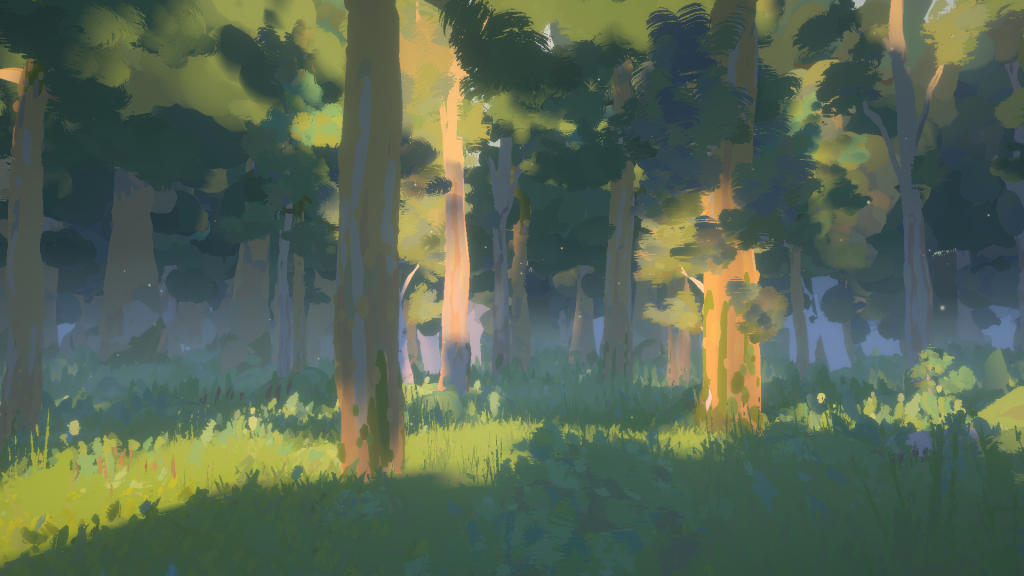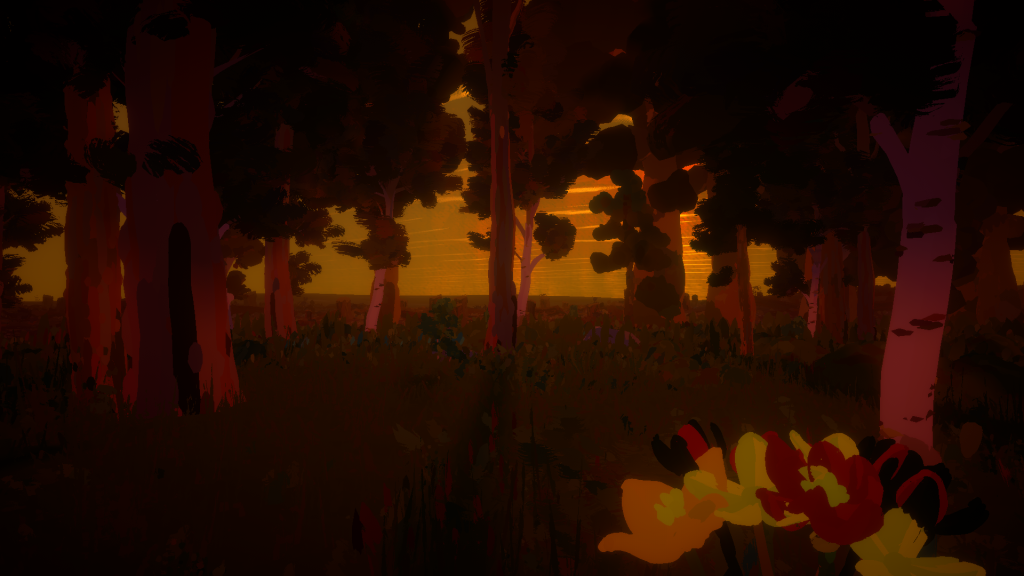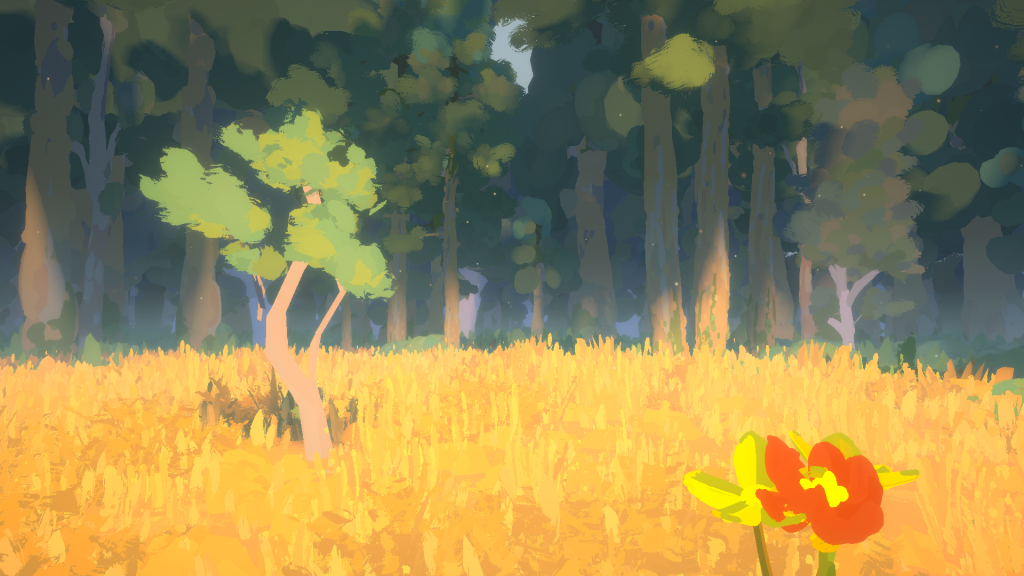Sunlight is a short exploration game in which you stroll through a forest, picking flowers. That may have already switched a few of you off, but please – stay a while and hear it out.
It’s a short hike through Sunlight‘s handpainted forest. The trees whisper to you as you walk in a variety of gently lilting voices, and Tchaikovsky swells in the background as you cast your eyes deeper into the wilderness. The miraculous thing about Sunlight is how delicately its parts are arranged – nothing ever pulls focus from the other. The dialogue, the graphics, the music – they’re all laid out precisely to play their own part without interruption.
At one point, Sunlight was described as “relaxing”. That’s not quite accurate, in my opinion. It’s meditative. In a short time, it guides you to a pocket of calm with expressionist art and classical music. The story told to you in a multitude of voices begins with childlike innocence, lulling you into a state of quiet curiosity. Through soft voices, rich musical accompaniment and vibrant nature, Sunlight sits you down and brings about a sense of open thoughtfulness. When you reach that point, it begins to ponder existential questions, and the nature of the human experience itself.

Krillbite have developed something of a masterpiece here. The game elements are only as present as they need to be – you’ll just be pushing forward on the analogue stick, watching the woods deepen in every direction as you do, occasionally picking up a flower. It’s not a universal experience – I think everybody who plays Sunlight will take away their own thoughts and interpretations on it, and for me at least it offered a moment of mindfulness, inspiring a mix of wonderings about the old “are games art” question.
This is art, absolutely. There’s no question about it – as mentioned above, the careful, precise placement of its elements is designed to evoke emotion and deep thought. Sunlight is, however, a game by the absolute barest definition. Whether or not that bothers you is just as personal as what you take away from your time with it, but for me at least it really doesn’t matter. The sparse interactivity of the world is part of what fixates your attention upon the screen in a way that other visual formats simply cannot do.

To Krillbite‘s major credit, there is nothing pretentious about Sunlight. The Steam page goes into some detail about the visual design, the range of voices across the globe used to record the dialogue, and, of course, the music production. It does not describe itself as profound, it does not tell you how to feel about it – for the most part, they were perfectly content to let the game speak for itself, and the low, low price point of £3.49 speaks volumes about their approach to the game. It is an experience they want you to have, a story they want you to hear, and one vitally important in a world that feels so very unsure at the moment.
There was one technical sticking point. The game looked absolutely gorgeous, but it uses a v-sync system that doesn’t allow very precise control over your framerate. I essentially ended up with the choice to play with immersion-breaking screen tearing or a frame rate around 30fps, which was not the smooth experience it could have been.

On a personal note, I played Sunlight after weeks spent clearing my way through Cyberpunk 2077 and Assassin’s Creed: Valhalla. Both huge, sprawling worlds dense with all the triple A thunder and lightning one might expect, with stories that took up weeks of my time. I am, for lack of a better word, exhausted by these huge adventures. You may well be in the same position as me, burnt out by the hectic holiday release schedule. Sunlight is the perfect palate cleanser – a short, sumptuous reflection to which you can only wander through. It’s the perfect way to clear your mind before moving onto something new.
Sunlight was developed by Krillbite Studio and is available now on Steam. For every copy of the game downloaded, they’ll plant a tree! Find more of our game reviews here.